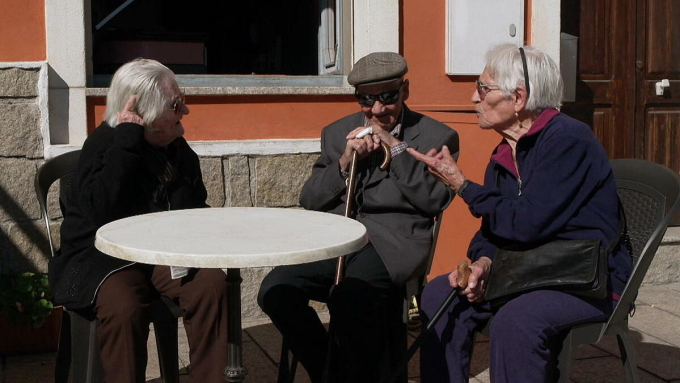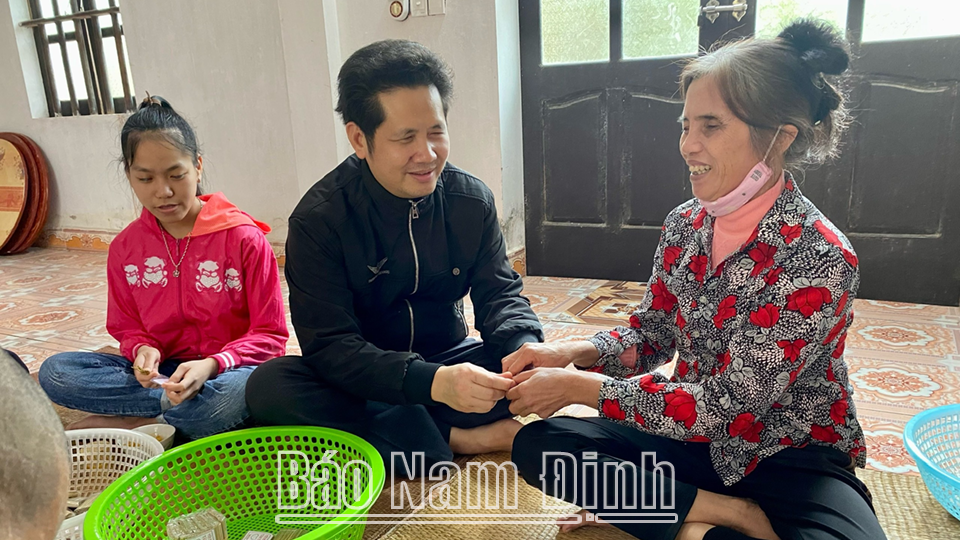Italy Drinking wine from local vineyards and eating organic fruits, vegetables and meat grown in fertile fields is the secret to longevity of the Sardinian people.
Sardinia, Italy, has the world’s highest rate of longevity. About six out of every 2,000 to 3,000 people on the island live to be a centenarian, says Valter Longo, director of the Longevity Institute at the University of Southern California. There are also more male centenarians than female centenarians, a rarity because men generally live longer than women.
"Demographically, this region is unique because men live unusually long. In the United States, for every centenarian man there are five women of the same age. In Sardinia, the ratio is 1:1," said Dr. Dan Buettner, an expert on the world's Blue Longevity Zones.
He pointed out several reasons why people in Sardinia can live long and healthy lives.
Drink wine
In recent years, Sardinian eating habits have become more varied, a result of a wave of immigrants bringing their own cooking styles to the island.
However, one staple of Sardinian cuisine remains: cannau wine, which is exceptionally high in antioxidants. According to Sebastian Piras, a photographer and filmmaker from Sardinia, this traditional wine is made from the Grenache grape. Bottles of cannau, which come from local vineyards, don’t even have labels. Bars often serve them in a medium-sized glass.
Previous research has shown that drinking a glass of red wine a day helps prevent heart disease and even cancer. Scientists have shown that low or moderate alcohol consumption helps reduce stress and improve blood circulation. Alcoholic components can reduce the risk of certain diseases such as stroke, upper gastrointestinal cancer, lung cancer and hip fracture.
"Farmer's Food"
According to Dr. Buettner, Sardinian cuisine is described as “peasant cuisine.” The staple foods are beans, green vegetables, and whole grains. Bread and cheese, especially Pecorino, are also popular. Sardinians often eat foods grown in their own gardens.
Piras shared that in his hometown of Barbagia, in the 1970s, families often ate homemade pasta, pork or lamb.
"Where I live, meat is the main ingredient in the diet. The specialties here are suckling pig, lamb and beef. Vegetables are mainly radish, dill, celery, very basic. Depending on the season, we also eat wild asparagus. It has a very strong flavor, different from in the US," he said.
However, according to Dr. Buettner, food accounts for only 25% of the longevity factors in Sardinia. The important secret to the centenarians is daily exercise. Due to the steep, mountainous terrain and typical shepherd lifestyle, Sardinians are always in a state of low- to moderate-intensity exercise, although not intentionally.
Lunch is the biggest meal of the day.
Sardinians have a big lunch, with a full appetizer, main course and dessert, served with salad, homemade pasta and Pecorino cheese. Despite their busy schedules, people usually try to come home for lunch with their families. After the meal, they take a nap and then go back to work.
For dinner, Sardinians tend to eat less and later than usual. Breakfast is sweet and eaten early. The common thread is simplicity. "Even in wealthy families, meals are very simple. We don't use as many ingredients as in the original Italian dishes. And we eat very fresh food," Piras says.

Elderly people chat on the island of Sardinia. Photo: CBS
Respect the elder generation
Unlike in the United States, where the elderly live in isolation in nursing homes or retirement centers, Sardinia does not set a specific retirement age. They create opportunities for seniors to work.
“One thing that Americans need to learn from the Sardinians is that they recognize that elders possess wisdom. They respect that wisdom, whether it’s general experience or specific knowledge about how to grow crops, when to sow seeds, how to deal with drought, pests,” Buettner said.
The elderly are not only respected for their longevity, they are also given the same working conditions as other family members.
"Families here would be embarrassed to put their parents in a nursing home. When the elderly are at home, they tend the garden, clean the house, cook or babysit," Buettner said.
Piras still visits his hometown regularly, even though he lives in New York City. He said that a typical Sardinian family has three generations living together. If the elders move away, the family checks in on them every day. The relationship between family members is extremely close and intimate.
Thuc Linh (According to NBC News )
Source link


![[Photo] Ho Chi Minh City speeds up sidewalk repair work before April 30 holiday](https://vstatic.vietnam.vn/vietnam/resource/IMAGE/2025/4/3/17f78833a36f4ba5a9bae215703da710)
![[Photo] Capital's youth enthusiastically practice firefighting and water rescue skills](https://vstatic.vietnam.vn/vietnam/resource/IMAGE/2025/4/3/3f8481675271488abc7b9422a9357ada)
![[Photo] Prime Minister Pham Minh Chinh chairs the first meeting of the Steering Committee on Regional and International Financial Centers](https://vstatic.vietnam.vn/vietnam/resource/IMAGE/2025/4/3/47dc687989d4479d95a1dce4466edd32)
![[Photo] Prime Minister Pham Minh Chinh chairs meeting after US announces reciprocal tariffs](https://vstatic.vietnam.vn/vietnam/resource/IMAGE/2025/4/3/ee90a2786c0a45d7868de039cef4a712)

![[Photo] A brief moment of rest for the rescue force of the Vietnam People's Army](https://vstatic.vietnam.vn/vietnam/resource/IMAGE/2025/4/3/a2c91fa05dc04293a4b64cfd27ed4dbe)

























































































Comment (0)